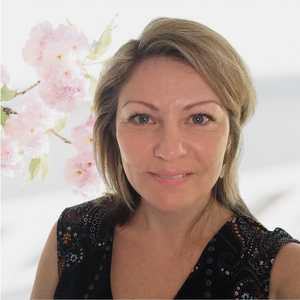Be connected with others
Everyone knows about the importance of friendships and social connections since childhood. It is one of the early developmental needs, to be connected to others. We start with early attachments to our care givers as babies, which we rely for comfort and support of our physical needs. We rely on those connections for physical survival. In childhood we start to develop connections with peers, and the importance of our friends becomes even stronger in teenage years. The importance of social connection does not disappear in adulthood. It remains throughout our life, although changing in its form, frequency and intensity.
Nevertheless, most people will feel disconnected, lonely and isolated during certain periods in life, even when they are surrounded by people. This is a great cause of suffering and mental health challenges.
Ideas for being connected
You may know this feeling. I know I do. So here are a few ideas to try to help manage this painful human condition: The ‘ACB strategy’:
- Avoid avoidance: We may try to manage the feelings of loneliness, isolation, not being understood or accepted by avoiding people and social situation. This just causes a spiralling down effect, and we get even more unwell. Remember this simple fact: “im human, therefore need to be connected”, and act on it. We sometimes wish we could exist in our own bubble, but we can not. So we accept it, and move on. Do the opposite of the urge to avoid/hide.
- Connection of any type or intensity: know that any connection to someone or something meaningful will have a positive effect on your well-being and mental health. People usually confuse social connection with deep and meaningful friendships/a person or a group that will accept and understand you etc. It is amazing when that happens (and it will), but it is not essential. As long as you can create short but frequent connections with people around you, you will benefit. It can be initiating a walk with a neighbour, inviting a friend for coffee (even a friend whom you have not seen a long time), joining colleagues for drinks/lunch (even if you do not know them that well). The magical ingredient here is: reach out, initiate, take action, say ‘yes’ to opportunities to connect, as small or meaningless it may seem to you at that time. And do it face to face!
- Be comfortable with alone time: sometimes you may be too overwhelmed, other times you will hear “sorry, I can’t”… and that’s ok. Pe prepared for it, expect it and accept it. Rehearse saying to yourself “that’s ok, another time”. Avoid negative interpretations (such as “I knew it, they don’t like me”), replace it with more balanced interpretation (“people are busy”/”its not the right time”/ “let’s try again next time”, “im ok to spend time by myself”). Normalise your alone time, it is also precious. Alone time can be time for reflection, processing own feelings, doing something you enjoy (brainstorm ideas for alone time). Alone does not mean lonely.
Other things to try:
- You may want to increase your social skills for better connections and more meaningful relationships: For example, if you are a shy person and avoiding conflict: get training in assertive communication. If you have tendencies to be explosive and conflictual with people, get support with emotional regulation and communication skills. You may use self help books, websites, videos, or use professional help of coaches, counsellors and psychologists.
- Get emotional support: you may have experienced great grief and trauma due to disconnection, isolation and mental health issues. Therapy will help you process your thoughts and feelings, integrate, heal and get back on track. Trauma stifles our growth and development. You may want to seek professional help through psychologists and mental health workers who work with trauma.
- Minimise social media time: it may be a big negative trigger to feelings of loneliness and unworthiness. Remember that social media is a fabricated, many times unrealistic, artificial environment. Try real, moment to moment connection with people where you see the raw, vulnerable, inconsistent, imperfect reality of human life.
- Forgive yourself: however you tried to manage your emotional pain up in the past, it is ok. You did the best that you could with the tools that you had at that time. Don’t judge or blame yourself. Focus on what you can do now to help yourself and how you want things to be better in the future. Work hard to avoid judgment and find self-compassion.
 Author: Ilana Gorovoy, B.Arts (Psych), B. Arts (Hons.)(Psychology), MPsych (Couns.)
Author: Ilana Gorovoy, B.Arts (Psych), B. Arts (Hons.)(Psychology), MPsych (Couns.)
With a Master’s in Counselling, Brisbane Psychologist Ilana Gorovoy draws on therapeutic approaches such as Cognitive Behavioural Therapy, Existential and Strengths-based approaches, Person-Centred and Positive Psychology, to assist her clients to become conscious of their strengths and difficulties, design and reach their goals, live a life of meaning and purpose, and reach their full potential.
To make an appointment with Brisbane Psychologist Ilana Gorovoy, try Online Booking – Wishart. Alternatively, you can call Vision Psychology (Wishart) on (07) 3088 5422.